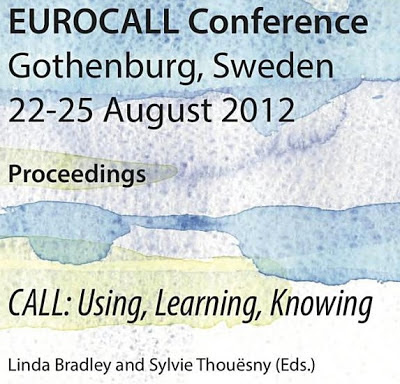The editor, associate editors and editorial board of Computer Assisted Language Learning (Taylor and Francis) extend a cordial invitation to attend our XVIth International CALL Research Conference at Universiteit Antwerpen (Antwerp, Belgium), 7-9 July 2014.
RESEARCH CHALLENGES IN CALL
The starting points for this conference are the 12 challenges Jozef Colpaert recently identified and presented at WorldCALL 2013 in Glasgow, and which he classified into three categories:
contextual (academic meritocracy, academic value of CALL, myths/hypes and broad-public perception), methodological (design, replication, slow research and transdisciplinarity), and epistemological (open, psychological, smart and sustainable aspects).
Our three proposed session types reflect these categories:
-Keynote speakers – Piet Desmet (K.U. Leuven University) and Bryan Smith (Arizona State University) – will tackle the contextual challenges in thought-provoking plenary sessions.
-Research papers should focus on your current research and should discuss the methodological challenges you encounter. Two selected research papers will be awarded as plenary presentations.
-Pre- and post-conference surveys, polls, group discussions and panels will focus on epistemological challenges we define together. If we want academic evaluation to become more objective, fair and justifiable, then epistemological challenges need to be defined clearly in advance. We would like this conference to be a catalyst for discussions regarding the question: What priority research topics can be defined by our community? This should lead to a document that can be used by all CALLers worldwide for supporting their research proposals.
Deadline for submissions is 30 November 2013. Please send your abstract (300 words) and biodata (100 words) to ann.aerts@uantwerpen.be.
Participants have the opportunity to combine the CALL conference with a Summer School in Design-Based Research (by Sven De Maeyer and Vincent Donche) or a Master Class in Educational Engineering (by Jozef Colpaert). Both events will be held from 30 June until 4 July. Further information will follow soon on the conference website www.antwerpcall.be.


